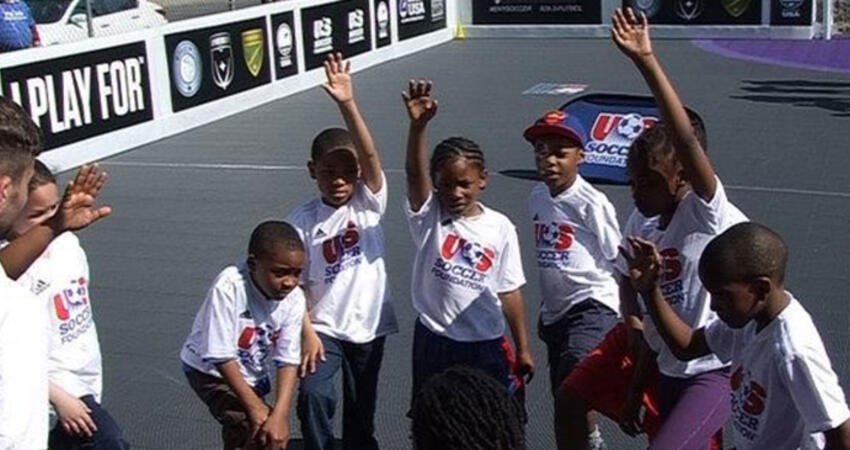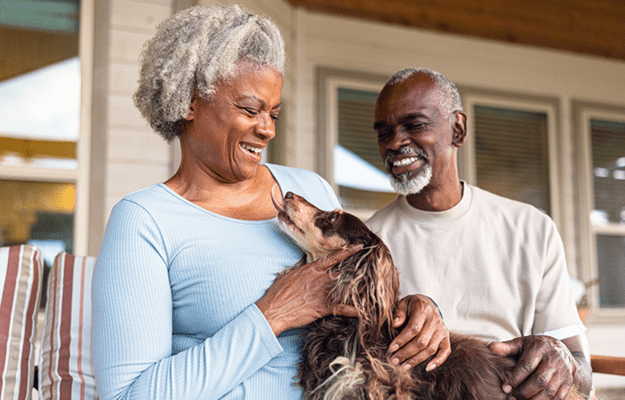
Housing and Soccer: A Winning Team in East New York
Soccer is more than just a game in East New York. For hundreds of residents in this low-income Brooklyn neighborhood, it’s also intended to open a gateway to a better life.
HELP USA provides shelter, transitional homes, permanent homes, jobs, and services to homeless and at-risk people across five states. It was founded nearly three decades ago by Andrew Cuomo, now governor of New York. In East New York, HELP USA operates Genesis Homes, a permanent affordable housing program providing services that include a partnership with a medical and dental clinic and an after-school program. Last year, HELP USA added soccer to its after-school program through its affiliate, Street Soccer USA (SSUSA).
SSUSA and HELP USA’s goals align perfectly. They both aim to improve health, education, and employment outcomes for the most disadvantaged Americans by using sports to teach critical skills such as punctuality and dependability.
Partnerships are essential for such projects, notes Stephen Mott, director of strategy and external affairs at HELP USA. “An organization can only be good at so many things,” he says.
Mott sings the praises of the Boys and Girls Clubs, a partner of Genesis Homes, as well as a group called Project Eats, which brings residents of Genesis Homes and other HELP USA housing programs to one of several farms just outside New York City. There, people can learn planting and farming skills, as well as how to run roadside stands or sell goods at farmers markets. HELP USA receives some of the produce—free—which is given to homeless shelters.
HOW A LOT BECAME A FIELD
How the soccer field in East New York came to be is a story of funding—or lack thereof—and opportunity. SSUSA operates on a lot that HELP USA intended to use for housing and a community center. However, funding ran out, and it became a place for parked cars and Dumpsters when Lawrence Cann, founder and director of SSUSA, pitched his idea for a soccer field.
Success came quickly. About 300 children and dozens of adults from Genesis Homes and the surrounding community have participated in East New York soccer programs since the field opened in summer 2014. Cann hopes for even better numbers this year.
While the field—made of interlocking plastic tiles—is popular with pickup players, SSUSA wants it to be used for the group’s formal programs, such as Soccer for Success, which promotes healthy lifestyles, and Street Skills after-school programs. SSUSA also supports organized adult soccer teams, which are run by volunteers and staff members who undergo rigorous mentorship training.
The arrival of a place to gather and promote outdoor activity was welcomed by Genesis Homes, which opened in 1992 with housing for 150 low-income families. Half its units are reserved for formerly homeless people and families, but as is the case with many such developments today, there is more to the program than simply providing a place to live. Tenants can take on-site General Educational Development (GED) classes, receive health services, and use a tenant advocacy program.
Cann says the soccer program grew out of his work helping homeless people in North Carolina.
These types of programs are being cultivated around the country. Another such effort, Back on My Feet, is a national program that pairs people in homeless shelters with running programs and running mentors to provide an opportunity for personal growth and responsibility. It also includes employment opportunities and helps participants craft résumés.
Whatever the program, the key to success is that all participants—children and adults—find a support group on the field while also meeting established expectations, such as attending practice and working to become empowered. All the while, he points out, they are also improving their health.
MORE THAN A GAME
For adults, the soccer program has three prongs:
- Practices, which are aimed at improving physical fitness, cultivating teamwork, and building job-readiness skills through scheduled times and the setting of expectations.
- Off-the-field relationships between players and coaches, which aim to build trust and establish a sense of community. These also segue to sessions on setting goals, financial literacy, résumé writing, and even job training.
- Games—local and national—that strengthen the participants’ sense of team.
With youths, the focus is on health and strong educational outcomes. For example, East New York’s SSUSA service coordinators found that youths’ reading scores needed a lift, so they enlisted other organizations to help find tutors. These coordinators also work with the health center at Genesis Academy to ensure that kids receive annual physicals and dental checkups.
“These programs give people a sense of belonging, of responsibility, and stick-to-it-iveness and lead them on the paths to stable lives, and that’s why they are so important to us,” says Mott.
Cann adds that when parents feel like their kids are involved in something positive, that “becomes a gateway for folks to get into other conversations, and we end up with relationships with the parents that have been hard traditionally for the housing program to build.”
Soccer has also proved itself to be an unexpected but effective path toward better health outcomes.
Renee Muir, head of community relations and development for the Brownsville Multi-Service Family Health Center in East New York, says program mentors also get to know doctors and teachers in the neighborhood, giving them the chance to ask how kids are doing while they “have their hand in all the pieces of the kids’ lives.”
The efforts in East New York align well with many of the recommendations included in the Building Healthy Places Toolkit recently released by the Urban Land Institute and the Center for Active Design. This guidance shows developers how to enhance health through design, which includes providing high-quality spaces for multigenerational play and recreation.
In assessing the success of the East New York program, Mott says all he needs to do is point down the hallway to the office of HELP USA’s accountant. Before landing that job, says Mott, the accountant had been homeless.
“SSUSA helped him find his path.”
Photo credit Donald Nicholson. Image includes youth and Street Soccer USA Coaches from the East New York Community Soccer Pitch.


